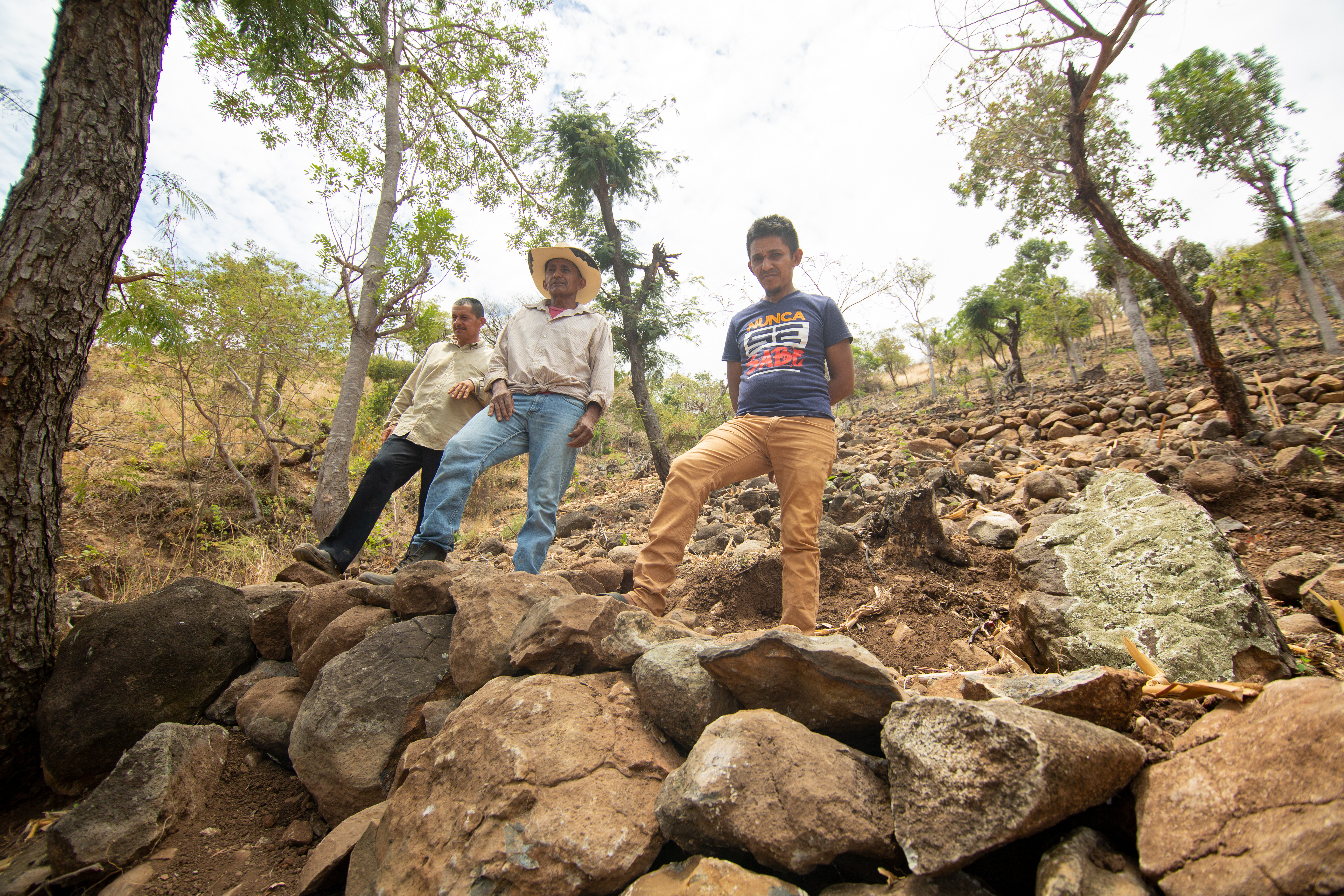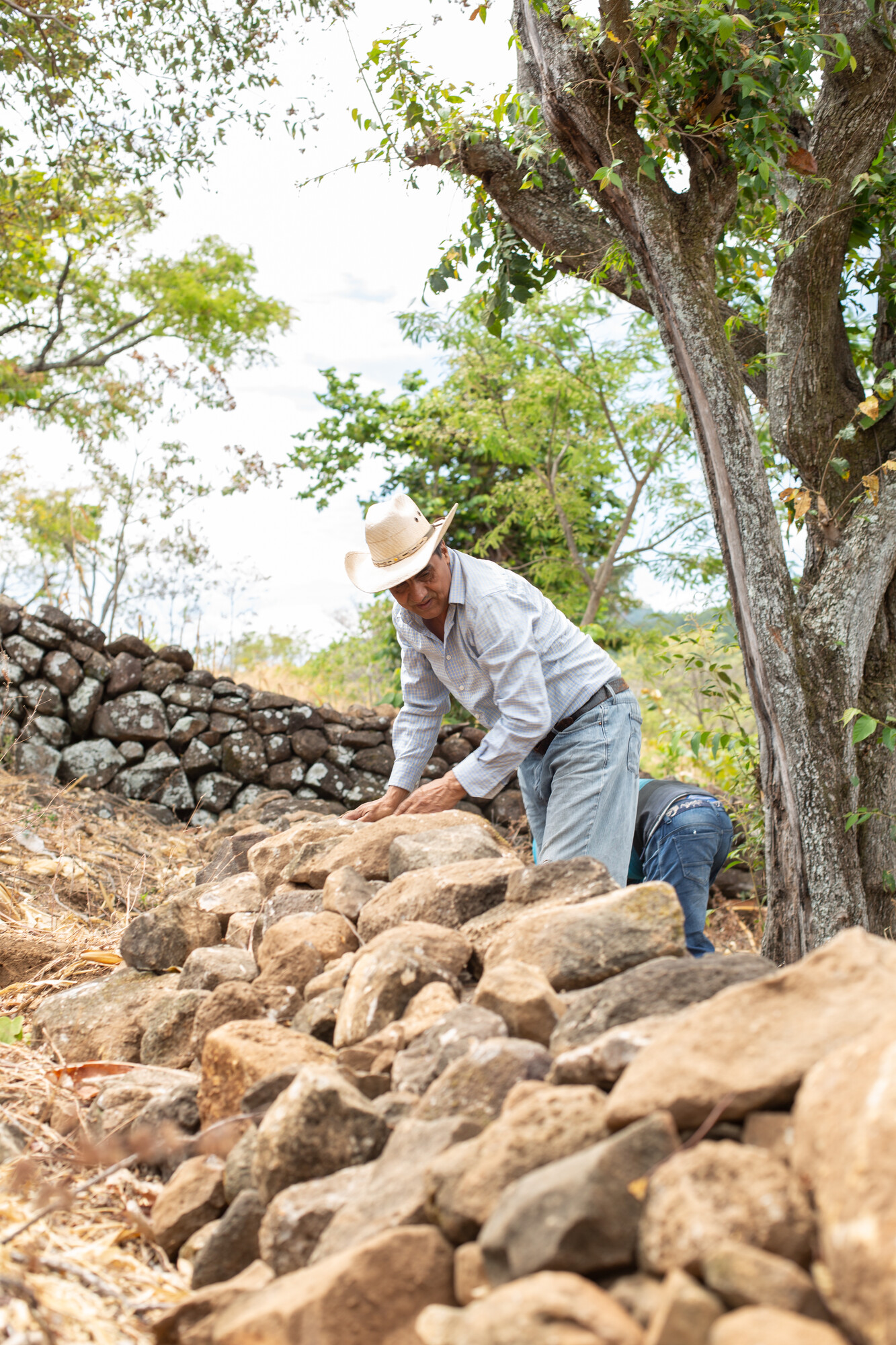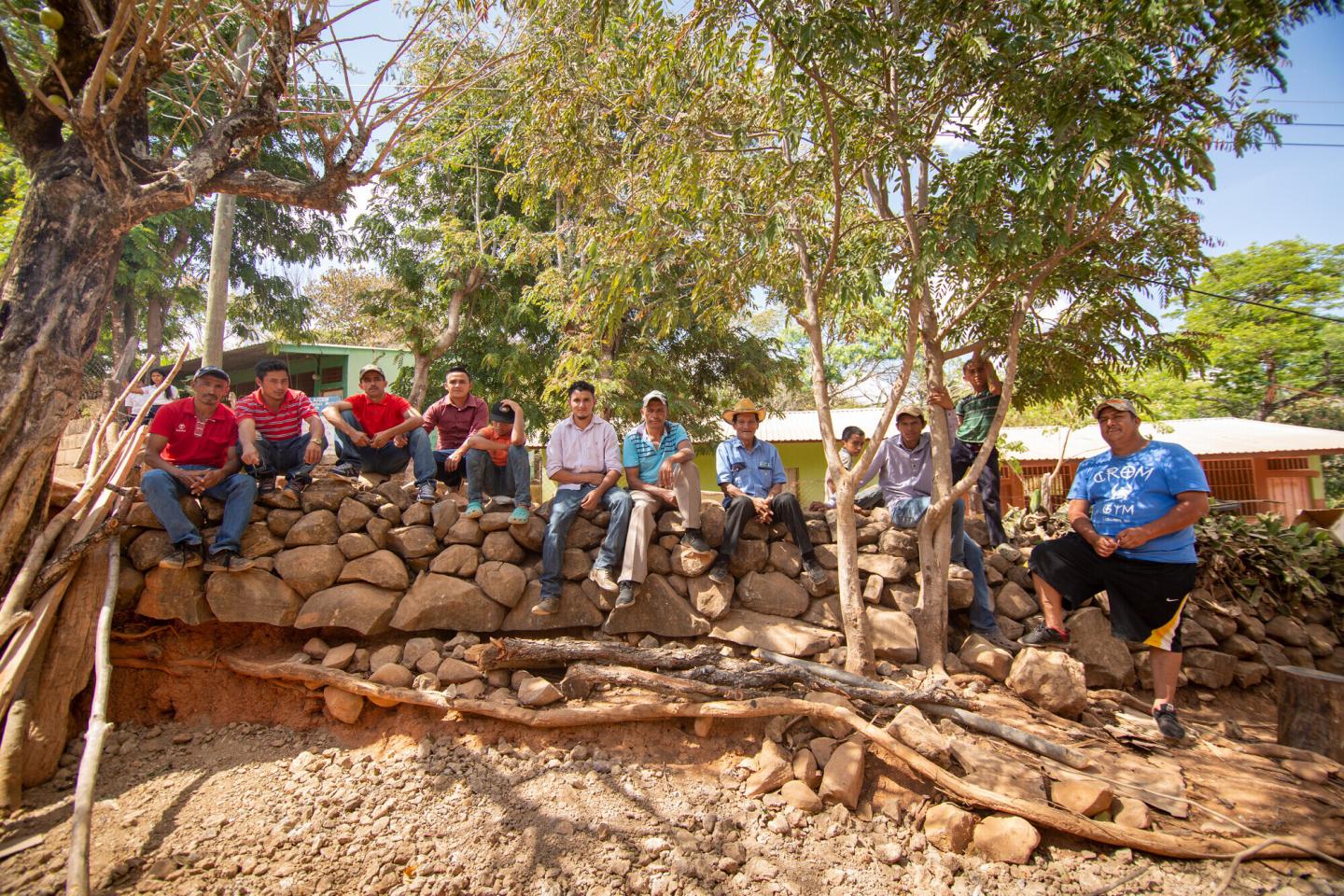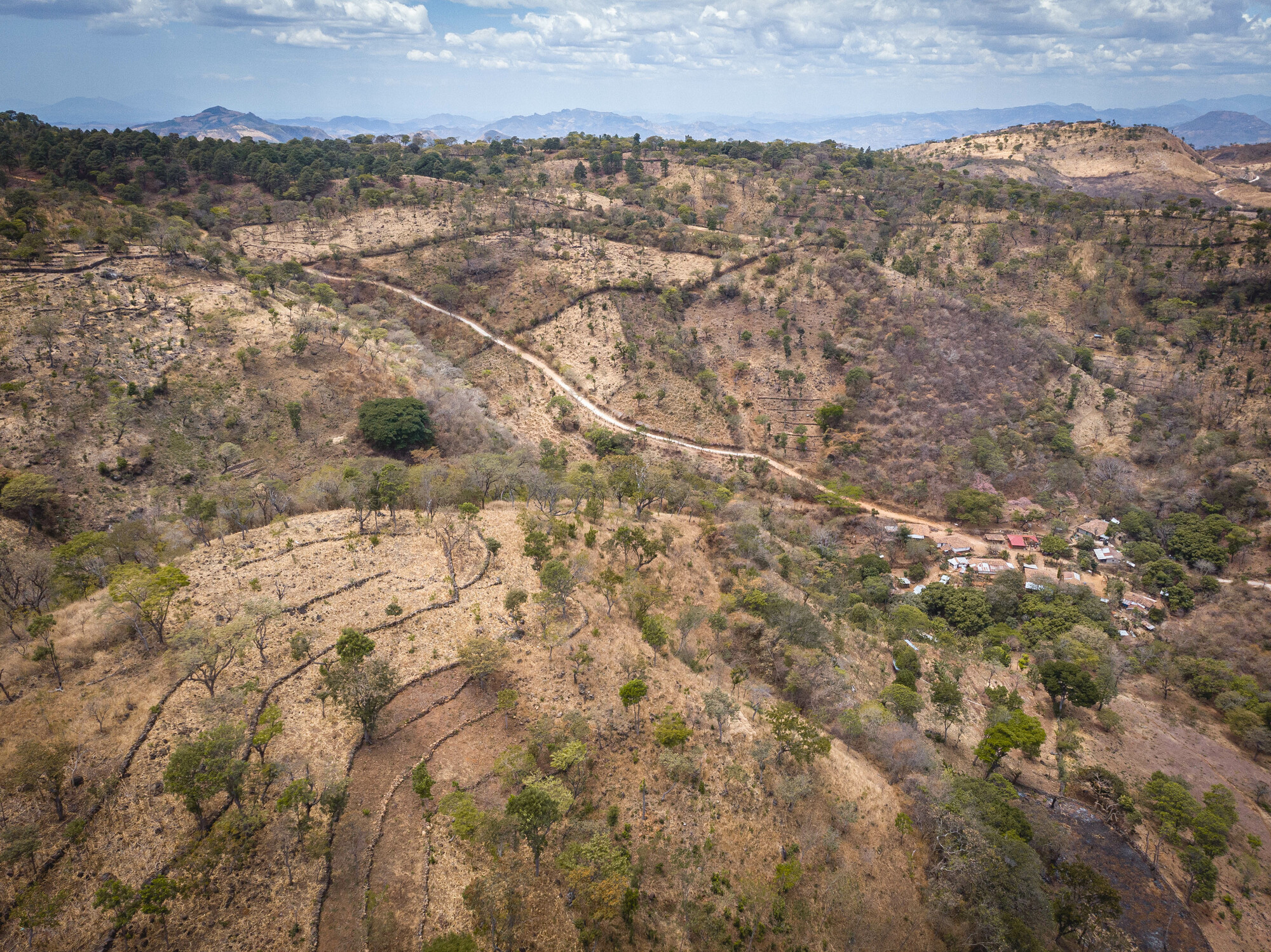Farming in the rain's shadow
An MCC partner in Honduras helps farmers adapt to extreme weather

Santos Canales Carranza was exhausted, but hopeful. He’d spent most of the last month hauling large stones from the area around his village up high into the surrounding hills. It was hard work, but if the stones did what they were supposed to, they were about to make part of his life much less difficult.
To find out if all the hard work of Carranza and his co-laborers was successful, all they’d have to do is wait for the first day of rain.
Carranza’s village, El Plan Grande, sits in a mountainous valley in western Honduras. With large mountains flanking it in every direction, El Plan Grande lives in a rain shadow. The mountains keep much of the seasonal rain away from their crops. When the rain does make it over the mountains, it falls with such force along the sloped land that it completely washes away seeds and soil alike.
But MCC partner CODESO (Social Development Committee) is working with farmers like Carranza to help El Plan Grande and dozens of other villages facing this problem. It’s likely to only continue to get worse as the extreme temperature events that drive rainfall are happening more often as the climate continues to change. While these villages may not be able to address the roots of climate change, they find themselves having to adapt to it nonetheless.

By laying out stones in long lines up the sides of the hills, they create barriers that slow the water down and prevent it from eroding the soil as it passes by. It’s a tremendous amount of work to haul the thousands of stones required to be effective on a large scale. But Carranza says the payoff was immediate the first time they got rain.
“When there’s a good winter [the rainy season for Honduras], the barriers help out a lot,” he says. “So when it rains — the rains pour on us, like a lot of rain in a really short time — those barriers have been helping us to retain the soil.”
And El Plan Grande isn’t the only village to see results from these barriers. Farmer Gertrudis Mendoza lives in El Tablon, a village in the same region that’s also worked with CODESO to successfully build erosion barriers.

“In those areas that I put in barriers, I can see the soil is there and the crops are growing nicely,” she says. “The other areas where there are no barriers, I mean of course you see the difference because the soil is just gone.”
So far, more than six miles of erosion barriers have been erected, shielding more than 350 farmers from the effects of runoff erosion. Carranza’s crops — this year corn, beans, sorghum, squash and pineapples — are growing better than they ever have. Mendoza says nearby farmers are seeing the results and want to be part of the project too.

“I had an opportunity to visit all my community members who were working on these barriers, and talking with them, they're happy because they see the difference with the retained soil,” says Mendoza. “They’re happy and willing to continue to adapt because they see the difference in their community. And there are communities around us that want to join us. They don’t have that kind of work now, but they’re willing to join.”
This program in Honduras is just one example of how MCC partners are helping people adapt to climate change. Visit the MCC website to learn more about MCC and climate change.
Top photo caption: (L to R) Farmers Santos Abraham Corrales, Jesus Corrales and Fredy Alexander Montoya stand on the hillside near Corralitos, Honduras, where their fields are interspersed with fieldstone erosion barriers constructed with the help of MCC partner CODESO (Social Development Committee). (MCC photo/Ring Connections)

